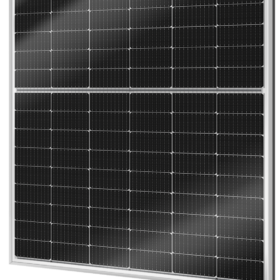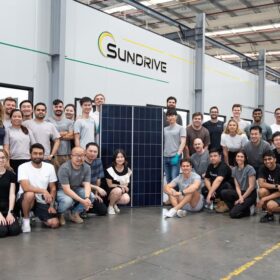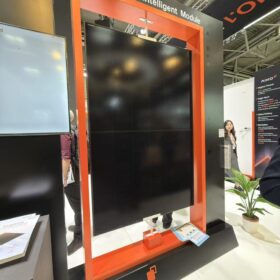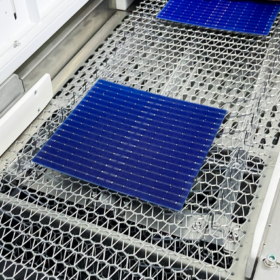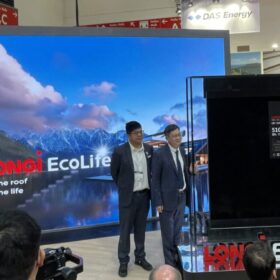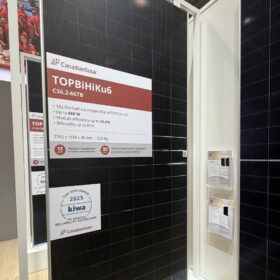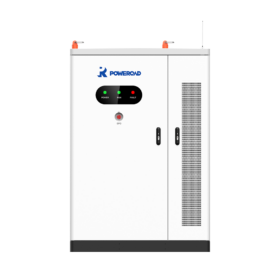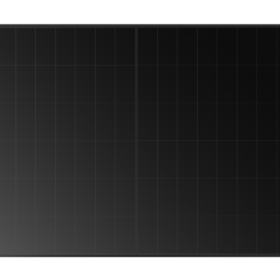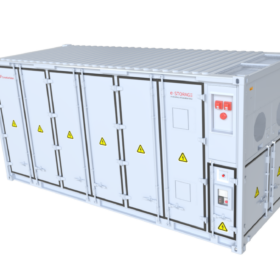Sunport Power launches lightweight n-type glass module with 22.5% efficiency
The Chinese manufacturer told pv magazine that high production costs and low module prices influenced its decision to change its well-known metal wrap through technology out for mass produced N-type technology for its latest product.
SunDrive strikes China pact to scale up copper PV technology
Australian PV innovator SunDrive Solar says it has struck an agreement with two of China’s biggest solar equipment manufacturers to help launch its copper electrode technology onto the global market.
Aiko unveils back-contact solar module with ‘fully intelligent integration’
Chinese solar cell and module maker Aiko has unveiled its new intelligent solar module series, Navigator. Based on the company’s N-type, all-back-contact technology, Navigator promises a 3% to 5% boost in annual energy yield and lower operating costs.
US-based SEG Solar launches cell production in Indonesia
United States-headquartered PV module manufacturer SEG Solar has successfully commissioned a solar cell factory in Indonesia with the first N-type cell produced at the facility having rolled off the production line.
Longi launches all-black back contact solar panel series
The EcoLife series brings Longi’s back contact technology to the residential solar market with panels that reportedly offer quicker system payback and reduced power degradation over time.
Canadian Solar debuts 660 W TOPCon solar panel with 24.4% efficiency
The new products are available in seven versions with power output ranging from 630 W to 660 W and power conversion efficiency spanning from 23.3% to 24.4%.
Poweroad launches 233 kWh battery for C&I solar
The Chinese manufacturer said that up to 10 battery cabinets can be connected in series to reach a total storage capacity of 2.33 MWh.
Longi launches residential HJT back-contact solar module with 25% efficiency
Longi has developed the Hi-MO S10, a residential heterojunction (HJT) back-contact solar module with 25% efficiency, combining 27.6%-efficient cells with up to 510 W output and 252.3 W/m² power density.
Canadian Solar’s storage unit launches 5 MWh battery
The battery unit of the Chinese PV manufacturer said its new large-scale battery has a lifecycle of more than 12,000 cycles. The system has a nominal capacity of 5 MWh and a roundtrip efficiency of up to 95%.
Taiwan proposes mandatory solar for new buildings
The Taiwanese government has proposed new rules requiring PV installations on most new, expanded, or renovated buildings. The draft standards aim to boost renewable energy and decarbonisation by setting minimum solar capacity requirements, with potential exemptions for insufficient sunlight or technical issues.
